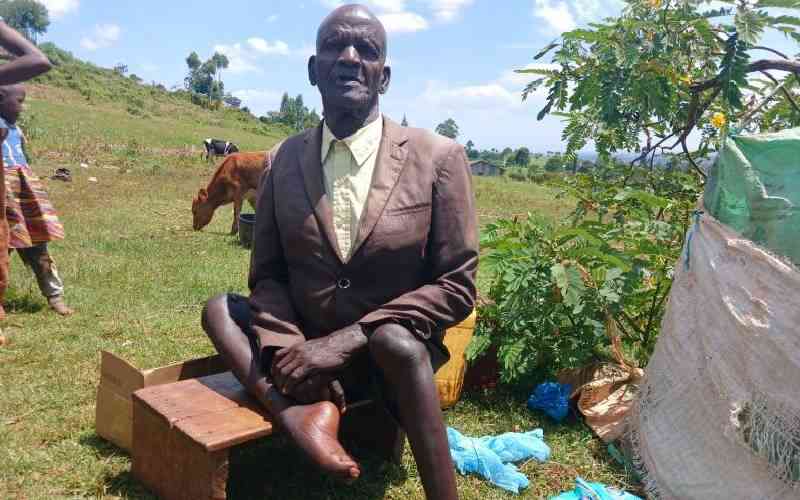×
The Standard e-Paper
Kenya’s Boldest Voice

A family of a physically challenged man is celebrating after their kin secured a national identification card after decades of failed attempts.
For Ben Mukur, 78, it has been an endless journey since 1986 when he hit the road to secure the crucial document.